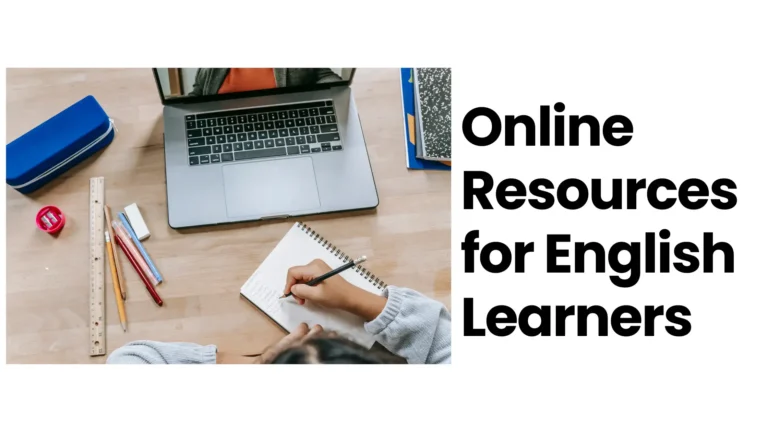Mastering English: Five Essential Tips for Success
Introduction:
Hello evevryone!
So, you’ve decided to embark on the exciting journey of mastering the English language. Whether it’s for professional growth, travel, or just the love of language, you’re in for a ride.
In this blog, we’re going to explore five essential and, dare I say, fun tips that will pave your way to English mastery. No need for complicated jargon or fancy textbooks – just good vibes and practical advice to make English your language playground!
Immerse Yourself in English Everywhere You Go
Learning a language is like becoming a part of a cool new club – and to join, you gotta dive in! Surround yourself with English in every way possible.
From movies and TV shows to music and social media, the more you soak it in, the better you’ll get. It’s like turning your life into an English-friendly zone.
Start with movies and TV shows that match your interests. Whether it’s a superhero blockbuster or a laid-back sitcom, there’s English content for everyone.
Don’t stress about catching every word; just enjoy the ride. You’ll be surprised at how much you pick up subconsciously.
Music is another fantastic tool. Listen to English songs, check out the lyrics, and sing along. It’s like having your personal language tutor set to a catchy beat. Bonus points if you can rap along with Eminem – that guy’s a word wizard!
Social media is your ally in this journey. Follow English-speaking accounts, join groups, and participate in discussions. Twitter, Instagram, and even TikTok can be your daily dose of English immersion.
Plus, you might make some international friends who can help you on your language quest.
Remember, the key here is to make English a part of your daily life, not just a study subject. The more you integrate it, the more natural it becomes.
Also read:
- How to Write a Leave Email
- Everyday English Expressions for Daily Use
- English Collocations with Meanings and Examples
- English Collocation Guide
Buddy Up for Language Exchange
Learning a language is more fun with company. Enter the world of language buddies – your partners in crime on this linguistic adventure. These buddies can be fellow learners or native English speakers. The goal is simple: chat it up and practice.
Start by finding language exchange partners through language exchange platforms or social media. Platforms like Tandem, HelloTalk, or even Reddit’s language exchange communities are gold mines for connecting with language enthusiasts worldwide.
Having a language buddy provides real-time practice. You can chat through messages, voice calls, or even video calls – whatever suits your comfort level.
The beauty of this exchange is that it’s a two-way street. You help them with your native language, and they help you with English. It’s a win-win!
If you’re feeling more adventurous, join online gaming communities where English is the primary language. Collaborate with teammates, strategize, and have a blast – all while improving your English skills. It’s like leveling up in the game and in language proficiency simultaneously.
The key to successful language exchange is consistency. Set a schedule with your language buddy, and make it a habit. Regular practice makes progress, and before you know it, you’ll be navigating English conversations like a pro.
In the digital age, language learning has never been more accessible, thanks to the wonder of language learning apps. These apps are like having a personal language coach in your pocket – convenient, interactive, and, most importantly, fun!
Duolingo, Babbel, Memrise – take your pick. These apps gamify the learning process, turning it into a playful experience. Daily challenges, rewards, and progress tracking make language learning addictive rather than tedious.
The beauty of language apps lies in their flexibility. You can squeeze in a quick lesson during your commute, while waiting in line, or even during your morning coffee. Learning becomes a part of your daily routine without requiring a massive time commitment.
These apps cover various aspects of language learning – vocabulary, grammar, pronunciation – you name it. The interactive nature keeps you engaged, and the gradual progression ensures that you build a solid foundation.
So, grab your smartphone, download a couple of language apps, and let the games begin. You’ll be amazed at how much you can learn in just a few minutes a day.
Read Like a Bookworm on a Mission
Books are not just for bookworms; they are your secret weapons for mastering English. Reading helps you absorb vocabulary, understand grammar in context, and, most importantly, enjoy a good story while doing so.
Start with the basics. Children’s books, comic books, and short stories are fantastic entry points. They use simpler language and are often filled with illustrations that help you grasp the meaning even if you encounter unfamiliar words.
As you gain confidence, move on to more complex reads. Novels, articles, and blogs cater to different interests and reading levels. Whether you’re into fiction, non-fiction, or niche topics like space exploration or cooking, there’s English reading material for everyone.
Don’t approach reading as a chore; think of it as an adventure. Pick up a book, get lost in the words, and let your imagination run wild. Reading not only improves your language skills but also opens doors to different worlds and perspectives.
If you’re not a book enthusiast, don’t worry. Start small, and gradually, you might find yourself hooked on the magic of words.
Speak Your Mind
Speaking aloud is the bridge between understanding a language and using it actively. It’s the moment when all those words floating in your mind find their way out into the world. Yes, it can be awkward at first, but trust me, it’s a game-changer.
Find a quiet space where you won’t be disturbed, look in the mirror, and start talking.
It could be about your day, your plans, or even what you had for breakfast. The goal is to get comfortable expressing yourself in English.
If you’re not sure where to start, try mimicking English speakers in movies or TV shows.
Pay attention to their intonation, pronunciation, and rhythm. It’s like having a conversation partner without the pressure of an actual conversation.
As you gain confidence, challenge yourself to speak on different topics.
You can record yourself or even join language exchange meetups or clubs where speaking is the focus. The more you practice, the more natural it becomes.
Remember, the journey to mastering English is not about perfection; it’s about progress. Embrace the awkward moments, celebrate the small victories, and keep speaking your mind.
Conclusion:
And there you have it – five essential tips for mastering English in a simple and casual tone.
Dive into the language pool, find your language buddies, let technology be your sidekick, read like a bookworm, and don’t forget to speak your mind.
Learning English is not a mountain to climb; it’s a scenic road trip with exciting stops along the way.
So, rev up your engines, enjoy the ride, and let English become the soundtrack of your linguistic adventure!
Frequently Asked Questions (FAQs) – Mastering English: Five Essential Tips for Success
Q1: Why is immersion important in learning English, and how can I incorporate it into my daily life?
A1: Immersion is crucial as it surrounds you with the language, making it a natural part of your routine. To incorporate it, watch English movies and TV shows, listen to English music, and engage with English content on social media. The key is to make English a constant presence in your daily life.
Q2: How do I find language exchange partners, and why is having a language buddy beneficial?
A2: You can find language exchange partners on platforms like Tandem, HelloTalk, or language exchange communities on social media. Having a language buddy is beneficial because it provides real-time practice, allowing you to chat, exchange ideas, and improve your conversational skills.
Q3: Are language learning apps effective, and how do they fit into a busy schedule?
A3: Language learning apps like Duolingo, Babbel, and Memrise are highly effective and fit into a busy schedule by offering short, interactive lessons.
They turn learning into a game, making it easy to integrate into daily routines, whether during commutes, waiting in line, or enjoying a coffee break.
Q4: How can reading contribute to mastering English, and where should I start if I’m not a bookworm?
A4: Reading is essential for absorbing vocabulary and understanding grammar in context. Start with children’s books, comic books, or short stories. If you’re not a bookworm, begin with smaller reads and gradually explore different genres.
Reading is not just about learning; it’s about enjoying a good story while improving your language skills.
Q5: Why is speaking aloud important, and how can I overcome the initial awkwardness?
A5: Speaking aloud is crucial for actively using the language. It helps bridge the gap between understanding and application. To overcome initial awkwardness, find a quiet space, practice in front of a mirror, and start with simple topics.
Mimicking English speakers in movies or TV shows can also help you get comfortable with pronunciation and rhythm.
Q6: How can I track my progress in mastering English, and what should I do if I feel stuck?
A6: Tracking progress can be done through language apps that offer progress tracking features. Additionally, regular conversations with language buddies and self-assessment during speaking practice can provide insights into improvement.
If you feel stuck, revisit your goals, try new learning methods, or seek guidance from more advanced learners or teachers.
Q7: How can I balance all these tips without feeling overwhelmed?
A7: Balance is key. Start small and gradually incorporate each tip into your routine. Find a pace that suits your schedule, set realistic goals, and celebrate small victories.
Remember, the journey to mastering English is about progress, not perfection. Enjoy the process, and don’t hesitate to adjust your approach based on what works best for you.





